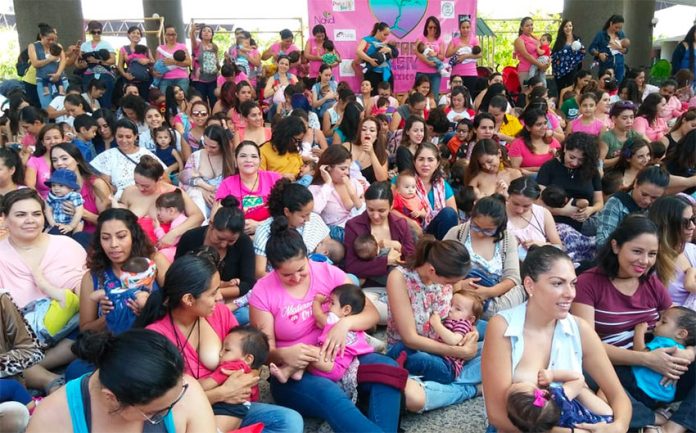You’d think we weren’t half of the world’s population.
When I had my baby six years ago I was happy that, despite the horror stories I’d heard about women in the United States being shamed and scolded for breastfeeding in public, I didn’t have to worry about prudish people sexualizing the feeding of my child.
Pretty much everyone that came to the house during that first year saw me feed her without a cover (I was always afraid she’d suffocate and just couldn’t bare to try), and there was nary a glance or mention of the appropriateness of it. I regularly fed her in public as well, with no negative reactions that I ever noticed. People were respectful.
I counted myself lucky to have escaped one more woman-shaming norm prevalent in my own country.
I’ve been puzzled since then to hear of numerous incidents of shaming breastfeeding women in public in Mexico. Even if it’s not the institution itself, individuals from within seem to feel more than at liberty to speak up, like the museum guard at Mexico City’s Modern Art Museum (the museum has since done the right thing and loudly corrected).
Even as Mexico City approved a law to protect breastfeeding women from ridicule, Senator Martha Cecilia Márquez (PAN) was interrupted by Porfirio Muñoz Ledo (Morena) saying that there was “a limit to the tolerance that can be given to a mother and her child” as she spoke before Congress with her baby in her arms.
In my home country of the United States, breastfeeding is an even stickier issue, and it can be hard to separate the ridicule that’s born of religious beliefs about modesty and (especially women’s) “natural sinfulness” and that which is born of simple prudishness paired with a patriarchal framework: we were born of a Puritan culture, after all.
The underlying belief here — and indeed, of much sexual violence against women — is that men are less-than-human animals that simply can’t be expected to control themselves. This is insulting to men, and infuriating to women who are constantly being held to a higher “moral” standard.
Women are routinely blamed for seducing — unwittingly or not — men; people seem to subscribe to the idea that anything about a woman’s exposed body is offensive if it’s not obviously being sexualized for their viewing pleasure.
In the U.S., men and women alike squirm upon seeing an unsolicited breast, and this reaction seems to be “spreading” to Mexico as one of those less-useful cultural imports. Let me tell you, the pressure to both breastfeed one’s babies and always to do so privately is a tall, postpartum-depression-inducing order. And while breastfeeding does certainly have health benefits, plenty of babies raised exclusively on formula do just fine in life.
Based on my own research, the benefits of breastfeeding might not be quite as miraculous as they’re made out to be, and we could all stand to lay off women if they decide not to breastfeed. With a maternity leave of only six weeks after the birth of the child, it’s hardly a mystery why so few women in Mexico choose to do so, let alone are able to do so.
The common thread between shaming women for public breastfeeding and shaming women for formula-feeding is “shaming women.” It’s almost as if strangers were more concerned about telling women what they should and shouldn’t do with their bodies than with the health of their babies.
Is it any wonder women are angry and marching in the streets?
The truth is that as long as we live in a society that looks upon women as second-class citizens and infantilizes them as frivolous and hysterical, there will always be some gender-wide complaint to lodge against them.
While men could rightfully say they’re criticized as a gender in plenty of ways, what they can’t say is that they’re systematically abused and killed as a result.
Sarah DeVries writes from her home in Xalapa, Veracruz.
